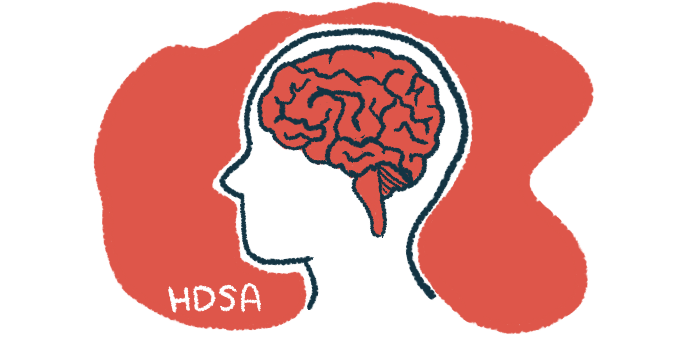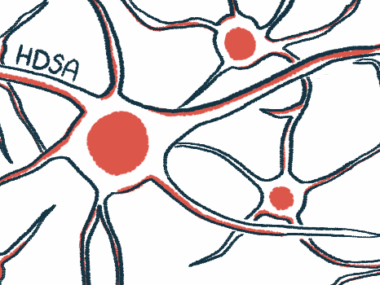HDSA 2024: Community urged to participate in observational studies
Data will help researchers better understand the disease to advance treatments
Written by |

The Huntington’s disease community was encouraged to step up and get involved in observational studies to help scientists better understand the neurodegenerative disorder and accelerate the development of potential treatments.
Participating in research “is the greatest thing that we can do to help expedite treatments for HD [Huntington’s disease],” said Jenne Coler-Dark at the annual convention of the Huntington’s Disease Society of America (HDSA), held last week in Spokane, Washington. Coler-Dark is chair-elect of the HDSA board of trustees.
Observational studies, such as the ongoing Enroll-HD and Power-HD, do not test a therapy on a given patient population, but instead collect data about disease progression and patient experiences.
“The data will help inform researchers on how HD changes over time, and will enable better data to be used in clinical trials,” said Coler-Dark, who herself carries the mutation that causes Huntington’s. “The advantage to everyone in this room is that it can help speed up the time to get therapeutics to patients and improve clinical care.”
“We really need to do our part,” she added.
Enroll-HD is world’s largest observational study in Huntington’s
Enroll-HD, funded by the U.S.-based CHDI Foundation, is the world’s largest observational study in Huntington’s, currently being conducted at more than 150 sites across nearly two dozen countries.
Since its launch in 2012, the study has collected data on more than 30,000 people with Huntington’s, and “more than 8,200 are coming from the U.S.,” said Selene Capodarca, Enroll-HD’s global study director.
About 20,000 participants are still in the study, and some have now been involved for more than a decade, Capodarca said.
“That really speaks a lot about how committed this community is to the study and to research in general,” Capodarca said, adding that having this kind of long-term follow-up creates “a wealth of valuable data for research.”
Participants have to provide a blood sample, and data on medical history, motor and cognitive function, behavior, and ability to perform daily activities are collected through yearly visits.
Enroll-HD is also a clinical research platform that has served as the basis for more than 100 platform studies, or smaller, more focused research efforts to dig into specific questions about Huntington’s. Details about opportunities for participation can be found at the Enroll-HD website.
Capodarca advised patients to talk to their provider about whether they can participate in Enroll-HD or one of the platform’s observational studies.
HDClarity looking for biomarkers in CSF
One such study called HDClarity is looking for disease-related biomarkers in the cerebrospinal fluid (CSF), the liquid around the brain and spinal cord.
“CSF is actually a very important biomarker, because of the proximity with the brain [it] is likely to reflect what’s happening in the brain,” Capodarca said.
Identifying objective biomarkers of disease activity is a major goal of observational studies like Enroll-HD. Having objective measures of disease progression can not only help track the disease in clinical practice, but is also invaluable for clinical trials to test whether an experimental therapy is working or not, Capodarca said.
Another of Enroll-HD’s platform studies, called Later Stage HD Assessment, is validating the use of two caregiver-reported assessments for people in the more advanced stages of Huntington’s.
In addition to CHDI Foundation’s Enroll-HD, the HDSA has its own observational study in which the Huntington’s community can get involved via online surveys that can be filled out at home.
The study, being done in collaboration with RareX, was originally launched last year under the name Huntington’s Disease Data Collection Initiative, or HD-DCI. It’s now been renamed Power-HD.
Power-HD is “essentially just a website that connects people to surveys that they can fill out,” Coler-Dark said.
Through these surveys, which may be completed once every three to six months, the study “will collect data that shows what the HD experience is for individuals, and allow researchers and scientists to examine that data against other participants,” she said.
Power-HD includes surveys for patients and wider Huntington’s community
Power-HD includes validated surveys not only for patients but also for the wider Huntington’s community, including people at risk, caregivers, and people who’ve lost loved ones to Huntington’s. “The surveys are assigned to each individual based on who they are and their connection to HD,” Coler-Dark said.
Registration for Power-HD can be done online and takes a few minutes. Then participants can fill out surveys at their leisure.
“You can do it from the comfort of your home,” Coler-Dark said. “You can scoop out a big bowl of ice cream, pour yourself a glass of wine, get cozy on the couch, pull up your laptop, and complete these surveys whenever you have a little bit of extra time and have an internet connection.”
Coler-Dark and Capodarca both stressed that data collected through these observational studies are protected and kept confidential. They called on the Huntington’s community to get involved in these efforts to help accelerate research, noting that these projects can only be successful if people are willing to participate.
“In order for this to happen, we have to participate,” Coler-Dark said. “We need the numbers to make sure that the data is valued and used.”
Note: The Huntington’s Disease News Today team is providing virtual coverage of the Annual Huntington’s Disease Society of America Convention (HDSA) May 30-June 1. Go here to see the latest stories from the conference.




